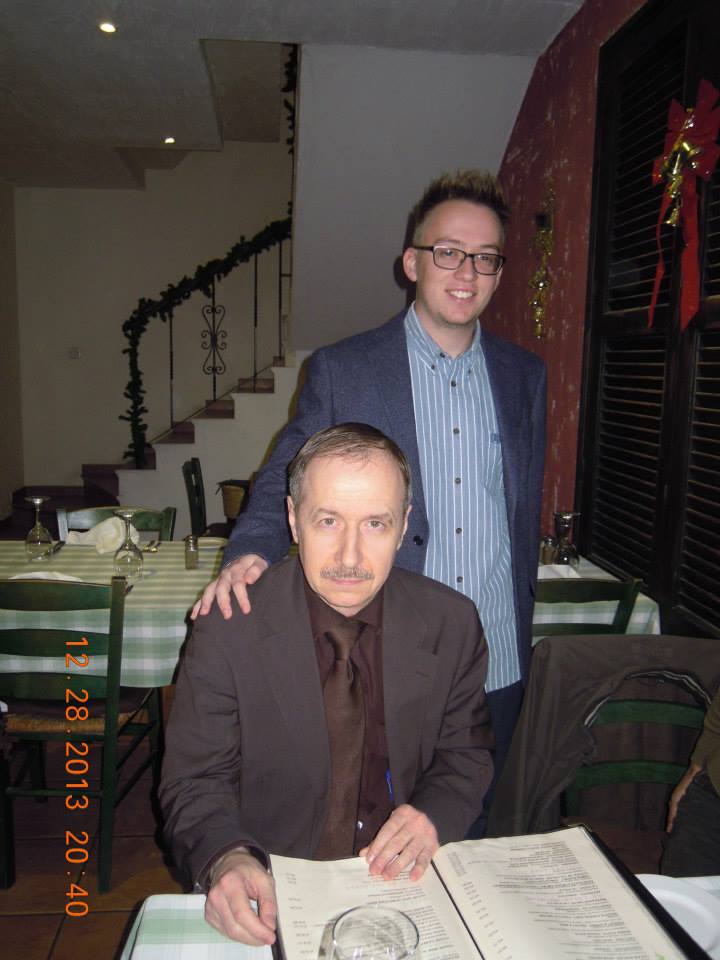Keep Things Simple

One of the most vivid childhood memories I have of my father was during a typical weekday morning, just as I was dropped off at school. Although my job at that time was of a diligent student, my father was not the type of person to subject himself to the drudgery of a conventional job. When I asked him what he would do that day, he chuckled mischievously and replied, “Something that people wish they could do.” I have seen him close property deals one day, work as an immigration consultant the next, and then bike a dozen kilometres the following morning to catch the sunrise in the same place Guglielmo Marconi received the first transatlantic wireless message. Signal Hill, as it is called, is the perfect place to catch—in a single gaze—both the majesty of the Atlantic Ocean and the historic prestige inherent to Britain’s oldest colonial capital beside it. He biked that route not as a sacrifice to cut gas expenditure but instead as a pursuit of what was most meaningful to him.
It was a simple financial code, one not directly related to his business acumen, which enabled him to afford retiring early: ‘Dedicated Saving Always Trumps Masterful Investing.’ Few of us find the patience or time required to gain an understanding of financial basics, such as the power of compounding interest and the importance of diversification. Fewer still can follow the value investing principles of Benjamin Graham and match Warren Buffett’s phenomenal returns. For everyone else, investing remains an opaque form of gambling or a sure-fire way of getting swindled out of your money by ubiquitous Bernie Madoff crooks.
Passive investing, statistically proven to give the best returns over extended time horizons, has been promoted as the ideal solution for mainstream investors; modern technology has made it simple to set up automatic contributions, reinvest dividends, and maintain tax efficiency with just a few button clicks a year. However, even long-term compounding, the eighth wonder of the world, does not lead to financial freedom. Achieving true independence requires a look outside the constrained box of one’s personal affairs and at the bigger picture of one’s entire life. It is not money that is limited in our world: Our fundamental limitation is time.
How to solve a problem like time? We cannot prevent it from moving in its singular direction and our healthy lifespans can only be extended by so much, even with the dazzling breakthroughs in stem cells, gene therapy, and tissue rejuvenation. Saying this is also to forget that trying to defeat a force of nature in such a manner misses the point entirely. Consider the myth of Sisyphus, an ancient Greek king who defied rules of hospitality and then evaded divine retribution through craftiness and deceit. His final fate was to live an eternal life of endless toil, rolling a boulder up the same hill, only to then watch roll back down. To many people, the boulder represents the burden of bill payments that must be made every month; and, surprisingly, even as they might gradually become (financially) stronger as their incomes increase, it seems that the weight of their boulders grow with them and they cannot escape it.
Just like Sisyphus, the social norm is to roll our boulder to the top and then watch it roll back. To pay bills, we spend the majority of our time working. To deal with our lack of free time, we chase momentary pleasures and prioritize convenience that creates bills—bringing us back to square one. The solution is not more money. It is in fact to grasp the first maxim my father told me; happiness ≠ spending money. While the best things in life for you may not be completely free, I can guarantee that it is the simpler things that give you pleasure on a deeper level. If your choices become about pursuing those simpler pleasures and to make happiness a foundation of your life, dedicated saving will become a virtuous side effect. By using logic to understand your true needs and rejecting the irrational emotions making you pursue insatiable wants, you will automatically start to seek out information that makes your life simpler. Once you are confronted with the deluge of useful information that is the Internet, you will then appreciate how much control you have over your life. You can stock your fridge with mixed greens, shop in bulk at Costco, cancel your TV service and refuse to borrow money for cars. You will challenge yourself daily, learn more monetizable skills, become an indispensable employee and move to a different city for adventure. You will become boundlessly optimistic, a source of envy for your friends and a positive role model for your kids without even knowing it.
I know this to be true because it has happened to me. By pursuing simple, pure happiness, I have changed drastically and discovered a community of like-minded individuals throughout the world. As a side effect, I am able to save two thirds of my income and to make it go to work for me in simple stock index funds. And when I retire, by age 35, I hope to have helped others transform from condemned mythological figures to the anti-heroes of today’s financially illiterate masses. They too will realise that a better life truly is simple.